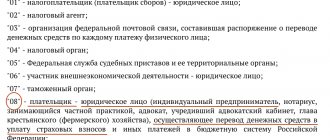Russian tax legislation contains such concepts as “residency”. For people who are becoming acquainted with these concepts for the first time, it may be difficult to understand official formulations, namely who is a resident and non-resident of the Russian Federation. In addition, the Tax Code of the Russian Federation answers questions about residency statuses in a very cumbersome manner.
Citizens often do not know which category they belong to if they regularly travel abroad for work or personal reasons. In the text we will talk about the features and differences between the two indicated statuses and explain what rights and obligations residents and non-residents of the Russian Federation have.
Who is a resident and non-resident of the Russian Federation?
Basic information about statuses
Many people confuse the definition of a citizen of a country and its resident. More precisely, people believe that these words are identical and are synonyms. This is an incorrect judgment. A person can be a Russian citizen and at the same time not be a resident, as in another combination - “stateless resident”. Let's take a closer look.
Article 207 of the tax code of the Russian Federation mentions that the status of “resident of the country” is available to people who live here for at least 183 days within twelve consecutive months. It is important to understand that these twelve months are not necessarily a calendar year, since the countdown can go from April of one year to April of the next, for example. Citizens traveling abroad for short periods of time will not lose their status. The maximum for continuous absence from the country is six months, and even then only for education or treatment. Also, offshore workers extracting hydrocarbons may be absent for six months.
Security officials, government officials and municipal government officials can leave Russia for up to a year without losing their resident status.
In these situations, citizens must be prepared to provide official documents confirming the purpose of their visits abroad and their duration. In the case of improving health, these will be special treatment (medical) visas in the foreign passport, contracts with foreign medical institutions. The situation is similar with obtaining an education - agreements with educational institutions and other supporting documents must be in hand. Moreover, both medical and educational organizations must have the appropriate licenses.
Article No. 11 of the Tax Code of the Russian Federation also states that resident status is obtained by:
- Citizens of the country who are registered at their place of permanent residence or location.
- Foreigners who have received a residence permit in Russia.
- Foreigners who have permission from an employee of the Ministry of Internal Affairs for continuous stay in the Russian Federation.
- Workers from other countries who have an employment contract for a period longer than 183 days.
It is logical that residential status cannot be achieved by individuals living in the country for less than the specified number of days or months that have passed between them. Regardless of the length of stay in the country (even if it exceeds 183 days), the status of “resident” cannot be obtained:
- refugees and foreigners who have received temporary asylum in the country;
- highly qualified foreign specialists invited to work/service.
The status of non-residents is characterized by a number of nuances:
- Persons who do not have resident status, but receive income in the country, are required to pay personal income tax.
- Even when paying income tax, non-residents cannot claim tax deductions: property, social, standard.
- Non-residents are required to submit a declaration to the Federal Tax Service when they receive profit in Russia.
- On each date of payment of such income, non-resident status is calculated and confirmed again.
Most often, citizens of the Russian Federation who rarely leave their homeland are its residents
General procedure for determining the status of a tax resident of the Russian Federation
Based on paragraph 1 of Art. 207 of the Tax Code of the Russian Federation the following must pay personal income tax:
- individuals who are tax residents of the Russian Federation;
- individuals receiving income from sources in the Russian Federation who are not tax residents of the Russian Federation.
As a general rule, tax residents are individuals who are actually in the Russian Federation for at least 183 calendar days over the next 12 consecutive months (clause 2 of Article 207 of the Tax Code of the Russian Federation). Regardless of the actual time spent in Russia, tax residents of the Russian Federation are recognized as Russian military personnel serving abroad, as well as employees of state authorities and local governments sent to work abroad (clause 3 of Article 207 of the Tax Code of the Russian Federation).
In accordance with Art. 209 of the Tax Code of the Russian Federation, the object of personal income tax is income received by tax residents of the Russian Federation both from sources in the Russian Federation and from sources outside its borders, and for individuals who are not tax residents - only from sources in the Russian Federation. At the same time, the tax rate for non-residents is not 13, but 30% (clause 3 of Article 224 of the Tax Code of the Russian Federation).
The period of stay of an individual in the Russian Federation is not interrupted by periods of his departure outside the territory of the Russian Federation for short-term (less than six months) treatment or training, as well as for the performance of labor or other duties related to the performance of work (provision of services) in offshore hydrocarbon fields.
Federal Law of November 29, 2014 No. 379 FZ, text of Art. 207 of the Tax Code of the Russian Federation was supplemented with clause 2.1, according to which in 2015, tax residents were recognized as individuals who were actually in the Russian Federation in the territories of the Republic of Crimea and (or) the federal city of Sevastopol for at least 183 calendar days during the period from March 18 to December 31 2014. The period of stay of an individual in Russia in the listed territories was not interrupted by short-term (less than six months) periods of travel outside the Russian Federation.
183 days of stay in Russia, upon reaching which an individual will be recognized as a tax resident of the Russian Federation, are calculated by summing up all calendar days when the individual was in the Russian Federation for 12 consecutive months (Letter of the Federal Tax Service of the Russian Federation dated June 25, 2020 No. BS-3-11 / [email protected] ).






